Fiona Phillips’ husband Martin Frizell has revealed what you shouldn’t do to those with Alzheimer’s as he offered advice to families battling the disease.
Former GMTV host Fiona, 64, who is mother to Nathaniel, 26, and Mackenzie, 23, was diagnosed with the progressive brain disorder in 2022 at the age of just 61.
The former ITV boss has shared the huge lesson he has learnt from caring for Fiona over the past few years – to never say no.
In the last chapter of Fiona’s upcoming memoir Remember When: My Life With Alzheimer’s, Martin says it is better to improvise with Fiona’s delusion than cause her extra distress by arguing against it.
It is something he has had to learn and has been sticking to after Fiona recently became obsessed with the belief Martin was a kidnapper holding her hostage.
Instead of continuously denying the thought, Martin plays along and pretends to walk her back home to her late parents – but is really just walking around the block, which he feels is the kindest way to handle the situation.
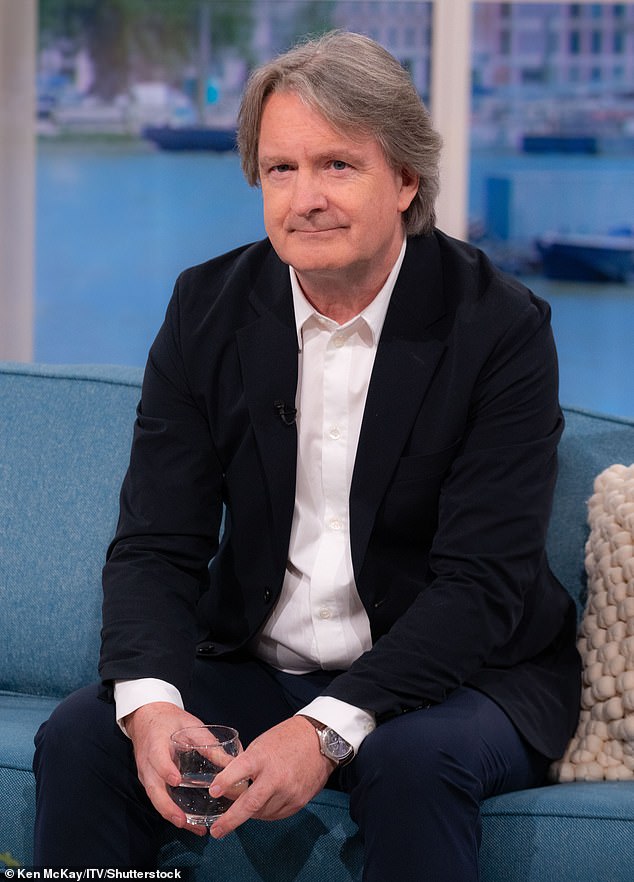
Fiona Phillips’ husband Martin Frizell, 66, has revealed what you shouldn’t do to those with Alzheimer’s as he offered advice to families battling the disease
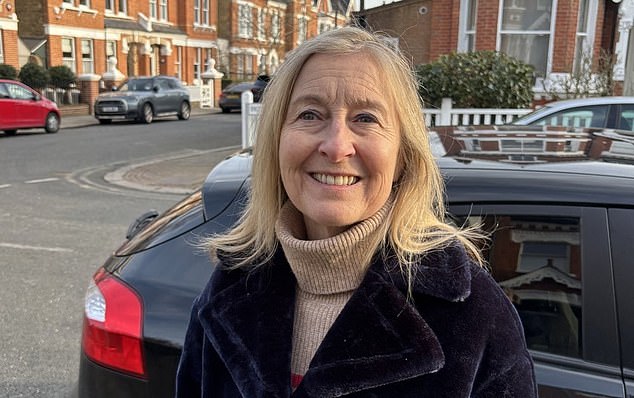
Former GMTV host Fiona, 64, who is mother to Nathaniel, 26, and Mackenzie, 23, was diagnosed with the progressive brain disorder in 2022 at the age of just 61
Martin writes: ‘The textbooks say to never argue with a dementia patient, although even without the illness you could never win an argument with Fiona, so we play along.
‘Sometimes Mackenzie has to fetch her electric-blue Whistles coat – one of the very few items of clothing this once-stylish woman now insists on wearing, despite having a room full of outfits – and then Fiona and I leave the house as if I am taking her home.
‘Fiona and I leave the house as if I am taking her home. We walk around the block as she loudly proclaims, “I’ll never forgive you for tricking me”, and passers-by stare; then we are back home again, where she goes in and greets Mackenzie as if she hasn’t seen him for days.
‘She has forgotten about her mum and dad and is happy to sit down.’
He adds: ‘It feels as though I have read a million books and online articles about how best to cope with a partner with Alzheimer’s. Some of the advice I agree with – but other bits I’m not so sure about.
‘I think you just have to trust your instinct and deal with whatever is thrown at you as best you can in that moment.
‘By trying to live up to being the perfect Alzheimer’s partner, you are just heaping even more pressure on yourself when there is already so much. And every day is different.’
Martin also shared how the broadcaster became ‘terribly distressed’ when she could not recognise their eldest son Nat.
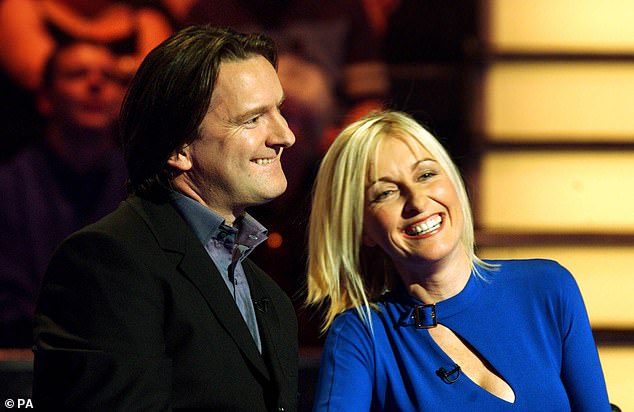
The former ITV boss has shared the huge lesson he has learnt from caring for Fiona over the past few years – to never say no (pictured 2001)
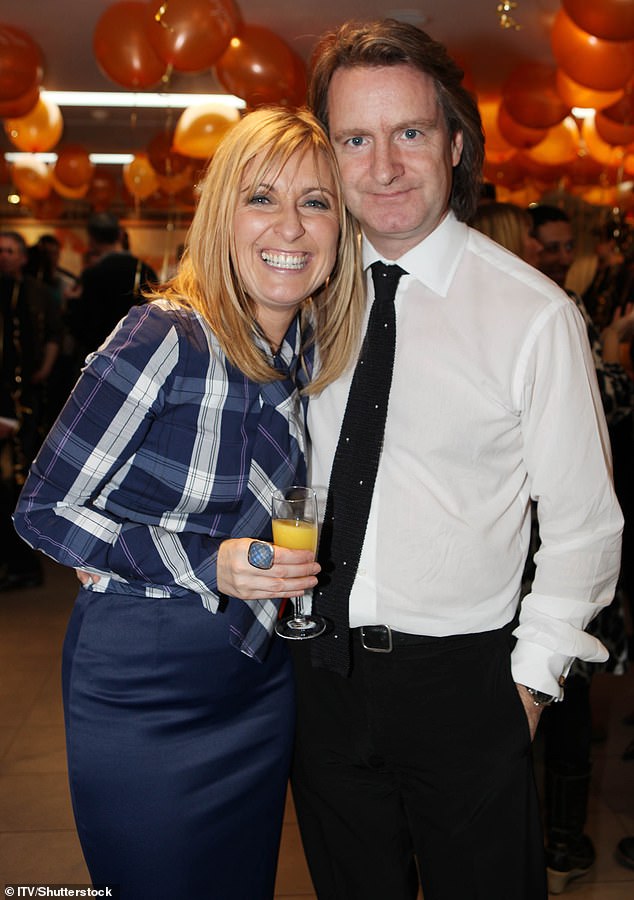
In the last chapter of Fiona’s upcoming memoir Remember When: My Life With Alzheimer’s, Martin says it is better to improvise with Fiona’s delusion than cause her extra distress by arguing against it (pictured 2008)
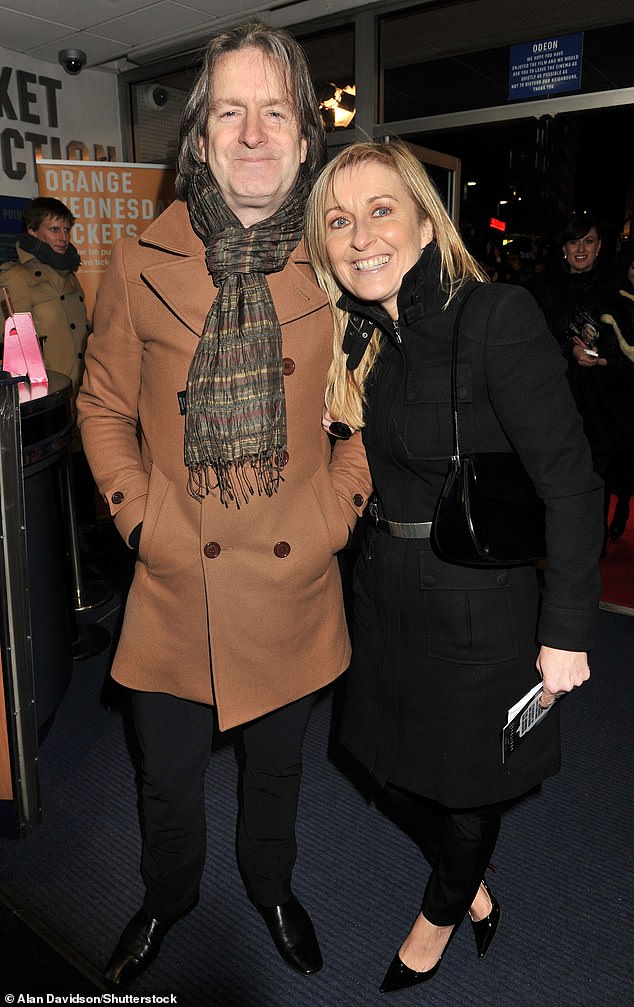
It is something he has had to learn and has been sticking to after Fiona recently became obsessed with the belief Martin was a kidnapper holding her hostage (pictured in 2013)
In an extract published in The Mirror he penned: ‘One weekend, Nat was home from the Army and making tea in the kitchen while Fiona and I sat watching television’.
‘She became terribly distressed. “Who’s that man in the kitchen?” she asked me. “That’s Nat” I said gently. “Our son. He’s home for the weekend”. She was in such a state that she didn’t even seem upset that she had asked the question’.
Martin said that Nat would have been ‘devastated’ to hear his mother being unable to recognise him, but thankfully he did not.
Fiona first met Martin when she was working on GMTV as a presenter and he was its chief correspondent.
He later popped the question after they had been dating for just four weeks, before they went to Las Vegas to tie the knot in 1997.
Having turned his back on his prolific job, in his own candid words, Martin revealed Fiona now needs ‘a lot of help’, with his care extending to showering Fiona, brushing her teeth, dressing her and ultimately ‘making her feel as safe as possible’.
He explained: ‘It is January 2025 as I write this, and Fiona needs a lot of help. She needs help showering and brushing her teeth. She can do these things physically, but is unable now to think about how she should do them…
‘I wash Fiona’s hair because she wouldn’t know what shampoo or conditioner to use or how wet her hair needs to be or that she must rinse the soap suds out afterwards…
‘And most nights I’ll say, ‘Right, we need to brush our teeth before we go to bed,’ and I’ll put the toothpaste on the brush and hand it to her…
Remember When: My Life With Alzheimer’s, by Fiona Phillips will be published on July 17.












